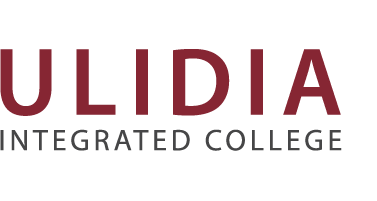
History
What is History?
The study of history within the curriculum is one of high importance. Without a doubt, it provides pupils with the knowledge of the past. It allows them to use their skills to investigate and research past events that have shaped their present world. Studying history provides pupils with the opportunity to understand the past and grasp why events took place in the world.
‘The study of history is about more than simply memorising dates and the deeds of famous figures. History is a chronicle of human behaviour – a real-life drama full of villains and heroes, the mighty and the meek. It examines the circumstances that moved its players to transform people and places (for better and for worse), and it holds the answers to how and why our lives are fashioned they way they are today – from our language, fashion and technology to our sports, political systems and religious practices.’ CCEA Website
‘History teaches everything including the future.’
-Lamartine
‘If you would understand anything, observe its beginning and its development.’ -Aristotle
The History Department wants to create an environment which is safe, fun, stimulating and challenging for all pupils who enter. The Department will provide effective teaching and learning, challenging pupils to work to their ability and achieve the results they deserve.
Staff & Positions
Subject Leader:
Mrs A McBride
Subject Teachers:
Miss Watters
Ethos of the History Department
As an Integrated School, our ethos is to create an atmosphere of tolerance, respect and understanding. We are educating Protestants and Catholics together, many of whom have deep rooted beliefs in their own traditions. It is these traditions that have found conflict with each other. It is very important that as teachers we are prepared and able to face this reality, while still promoting the ethos of the school.
Within the Department, we as teachers must be aware of a number of issues that might arise in the classroom.
We must be mindful of the language we choose to use. When discussing events, teachers must avoid using words like: ‘us’, ‘them’, ‘our’ or ‘your’ in relation to groups. Teachers are facilitors of learning; they must remain neutral when teaching topics like Irish History.
Sometimes one person’s fact is another person’s fiction. Within the classroom teachers must be prepared to teach pupils how evidence from the past can be interrupted differently depending on who reads it or who has written it.
It is our hope that the study of history will inspire young people to be ‘history makers’. We hope they don’t just learn about history but go and make their own history. That negative events should not be repeated but positive events are made.
All members of the department will strive to meet the needs of each learner. They will endeavour to bring history to life, making it relevant to the children who are in front of them. Teachers will remain balanced at all times, providing the highest quality of teaching to all students. It is hoped that the enthusiasm of the teachers, will inspire and encourage pupils to become great historians.
Key Stage 3
Overview
Year 8
- What is History
- How History has Shaped People
- Ancient Civilisations
- The Coming of the Normans
- Castles
- The Normans in Ireland
Year 9
- Changes in C16th and C17th
- The Reformation
- The Tudors
- The Ulster Plantation
- The English Civil War
- The Williamite Wars
Year 10
- The Beginning of Conflict in Ireland
- The Land War and the Beginning of Home Rule
- The Revival of Nationalism and Home Rule
- The Crisis over the Third Home Rule Bill and the Outbreak of World War One
- World War One
- The Easter Rising
Assessment
- Tests
- Final Exam
Homework
- 2 set each 2 week cycle.
- Key Word Spellings
- Research and Fact Finding
- Revision
- Work Sheets
- Interviews
Key Stage 4 & 5
GCSE Overview
- Germany 1919 – 1939 (30%)
- Northern Ireland 1965 – 1998 (30%)
- Cold War (40%)
Assessment throughout the Course
- GCSE Practise Papers
- Learning Homework
- Research bases homework for controlled assessment
- Extended writing tasks
A Level Overview
Year 13
Germany 20% of A’ level
Russia 20% of A’Level
Exam in Year 13
Year 14
Clash of Ideologies – 20%
Year 14 – Ireland – 40%
Exam in Year 14.
WEBSITE ADDRESSES OF REVISION LINKS
http://www.bbc.co.uk/schools/gcsebitesize/history/
http://www.rewardinglearning.org.uk/microsites/history/gcse/
